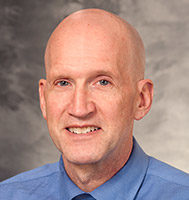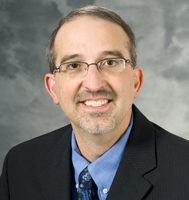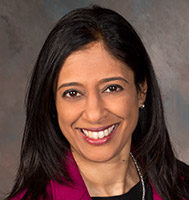Virtual Seminar & Lectures | Friday, October 16, 2020
Seminars in Pediatrics highlights the latest trends in pediatric research and clinical practice and provides physicians, nurses and other primary care providers with up-to-date information on developments in the prevention and treatment of childhood and adolescent diseases. The theme of this year’s virtual event is Health Equity and Social Determinants of Health.
How to Register
Visit: go.wisc.edu/Seminars2020
Available Credit
- 7.00 AMA PRA Category 1 Credit™
- 7.00 ANCC Contact Hours
- 7.00 University of Wisconsin–Madison Continuing Education Hours
About Seminars
Seminars in Pediatrics is provided annually by the University of Wisconsin Department of Pediatrics, the American Family Children’s Hospital, and the University of Wisconsin Interprofessional Continuing Education Partnership (ICEP).
Schedule & Lecture Details
|
7:45am |
Welcome, Mala Mathur, MD, MPH |
|
8:00am |
From Policy Statement to Practice: Integrating Social Needs Assessment and Outreach in Health Care Delivery, Kevin P. Fiori, MD, MSc, MPH In 2016, the American Academy of Pediatrics issued a policy statement on poverty and child health, which recommended that providers “screen for risk factors within social determinants of health during patient encounters.” However, translating this policy recommendation in routine care is challenging especially with limited evidence-based practice guidance to inform providers. This presentation will provide an overview of Montefiore Health System’s experience integrating standardized social needs assessments and linkage to resources in over 20 primary practices, share practical lessons learned, and discuss next steps and needed research on how health systems can support families with unmet social needs. |
|
9:00am |
Coping With Grief: Supporting Children, Parents, and Providers, Ryan M. McAdams, MD The impact of grief from disease, disparities, and death on children, parents, and providers can be profound. As pediatric providers, we often need to provide guidance and support to children and families who are grieving. We are also susceptible to grief, which may affect our abilities to perform in a sustainable, high-functioning, effective manner. This presentation will describe sources of grief, the effects of grief, and ways to cope with grief. We will discuss the unique challenges facing children in communities characterized by poverty and toxic stress. This presentation will help pediatric providers identify factors that may hinder normal grieving and provide advice on strategies to promote resilience. |
|
10:00am |
Break |
|
10:15am |
More Than Just Wheezing: Management of Childhood Asthma Begins With Addressing Where our Patients Grow, Live, Learn, and Play, Sima K. Ramratnam, MD, MPH Asthma is the most common chronic disease of childhood and is one of the main reasons for outpatient and emergency room visits, hospitalizations, high health care costs, and missed school days. There are significant disparities in asthma prevalence and outcomes by race, ethnicity, and socioeconomic status. Numerous studies have suggested that social determinants of health, such as the physical environment, neighborhood characteristics, family relationships, education, and access to health services impacts the health of children with asthma. It is vital to identify these social determinants of health in order to address the disparities in asthma outcomes across populations, but doing so can be difficult to integrate into clinical practice. This presentation will review how to identify and address the social determinants of health in the care of children with asthma in a clinical setting. |
|
11:15am |
Children’s Exposure to Environmental Pollutants . . . What’s a Pediatrician’s Role, Elizabeth J. Neary, MD, MS Parents often ask their pediatrician questions about the chemicals that their children are being exposed to, from pesticides to contaminants in water. This presentation will prepare you to answer those questions by updating your knowledge of current and emerging environmental issues that impact the health of children. This presentation will also review recent research, offer practical tips for advising parents, and provide resources for your continuing education in environmental health. |
|
12:15pm |
Lunch/Online Vendor and Community Health Partners Luncheon |
|
1:15pm |
Two Minutes, Two Slides, David T. Bernhardt, MD (Moderator) |
|
2:00pm |
Racism as a Social Determinant of Health: An Interactive Panel Discussion, Jasmine Y. Zapata, MD, MPH Please join us for this thought-provoking discussion facilitated by pediatrician and preventive medicine physician Jasmine Zapata, MD, MPH. She will be joined by a panel of community stakeholders to discuss 1) the lived experience of minority patients and families as it relates to racism as a social determinant of health; 2) strategies for dismantling racism both within the health care system and in our communities; and 3) how healing can take place between the health care community and those who have experienced racial trauma. |
|
3:15pm |
COVID-19 in Pediatrics: Droplets, Disease, and Disparities, Gregory P. DeMuri, MD The current epidemiology and pathogenesis of pandemic coronavirus in children will be discussed. Up-to-date information on diagnosis and treatment of COVID-19 will be presented. Disparities in the clinical and social effects of this pandemic on children will be discussed. |
|
4:15pm |
Closing Remarks, Mala Mathur, MD, MPH |
Meet the Speakers
This is an accordion element with a series of buttons that open and close related content panels.
David Bernhardt, MD

Dr. Bernhardt is a professor in the University of Wisconsin Department of Pediatrics’ Division of General Pediatrics & Adolescent Medicine and Orthopedics, where he also has a primary care sports medicine practice. Dr. Bernhardt is the director of the Primary Care Sports Medicine Fellowship.
Greg DeMuri, MD

Dr. DeMuri is a professor and infectious disease researcher at the University of Wisconsin Department of Pediatrics. He co-leads a research group that studies upper respiratory infections in children.
Kevin Fiori, MD, MPH, MSc

Dr. Fiori is a general pediatrician, researcher and educator. He is an assistant professor in both the Division of Academic General Pediatrics and Department of Family and Social Medicine at Albert Einstein College of Medicine (Bronx, NY). He is Medical Director at the Office of Community & Population Health, Montefiore Health System. His research aims to address health disparities in communities both in the Bronx and abroad.
Mala Mathur, MD, MPH

Dr. Mathur is a Clinical Associate Professor at the University of Wisconsin School of Medicine and Public Health in the Division of General Pediatrics & Adolescent Medicine. Dr. Mathur’s work focuses on quality improvement, advocacy and health equity. She serves as Policy Co-Chair on the American Academy of Pediatrics (AAP) Executive Committee for the Council on Community Pediatrics and serves on the AAP Chapter Forum Management Committee for AAP District VI. Dr. Mathur is Immediate Past President of the Wisconsin Chapter of the American Academy of Pediatrics.
Ryan McAdams, MD

Dr. McAdams is an associate professor and Division Chief for the University of Wisconsin Department of Pediatrics’ Division of Neonatology & Newborn Nursery, and a faculty member in the Division of Global Pediatrics. Through research, scholarship, and clinical work, he is committed to providing the best care to every baby everywhere to they can survive and thrive.
Beth Neary, MD, MS

Dr. Neary is the Wisconsin representative for Pediatric Environmental Health Specialty Unit (PEHSU), Region 5, a joint venture of AAP and EPA. Dr. Neary is also co-president of the Wisconsin Environmental Health Network and Professor Emerita at the University of Wisconsin Department of Pediatrics. After practicing general pediatrics for many years, Dr. Neary devoted herself to environmental issues that impact the health of children. She teaches environmental health to pediatric residents and medical students, and she has testified numerous times to the Wisconsin State Legislature on lead and other environmental toxicants impacting children.
Sima Ramratnam, MD, MPH

Dr. Ramratnam is an assistant professor and researcher in the University of Wisconsin Department of Pediatrics’ Division of Allergy, Immunology & Rheumatology. Dr. Ramratnam is triple board certified in Allergy & Immunology, Pediatric Pulmonary, and General Pediatrics and is currently the clinical director of Pediatric Allergy. Her clinical interests include chronic cough, airway disorders, difficult to treat asthma, rhinitis, food allergy, urticaria, and atopic dermatitis. Her research has focused on severe childhood asthma, the impact of maternal mental health on the development of childhood asthma and allergy, and the effects of childhood asthma on neurocognitive status
Jasmine Zapata, MD, MPH

Dr. Zapata is an assistant professor, researcher and educator in the University of Wisconsin Department of Pediatrics with an affiliation with the UW Institute for Clinical and Translational Research. She is the faculty director for The Ladder, a partnership between the School of Medicine and Public Health and Boys and Girls Club of Dane County that offers long-term mentorship for scholars from diverse backgrounds. She also helped develop a financial literacy program for school-age students, and wrote “Beyond Beautiful,” a socioeconomic empowerment book for girls of all backgrounds. Dr. Zapata is passionate about developing innovative strategies to combat racial inequities in maternal and child health in Madison and beyond.
